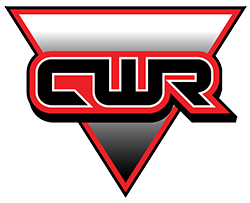The Role of Industrial Refrigeration in Food Safety

In the food industry, safety is paramount. The CDC estimates that 48 million people get sick every year due to foodborne diseases. Ensuring that food products remain safe for consumption from the point of production to the consumer’s table relies heavily on effective temperature control.
Industrial refrigeration systems play a critical role in food safety, preserving the quality, freshness, and safety of food products throughout the supply chain. Let’s explore the essential role that industrial refrigeration plays in food quality and how it contributes to maintaining the highest standards in the food industry.
Preserving Food Quality and Extending Shelf Life
One of the primary functions of industrial cold storage systems is to preserve the quality of food products by slowing down spoilage and decay. Most food products are highly perishable and require specific temperature conditions to remain fresh and safe for consumption. Proper refrigeration slows the growth of bacteria, molds, and yeasts, which are responsible for food spoilage.
By maintaining optimal temperatures, refrigeration systems extend the shelf life of perishable foods such as meat, dairy, fruits, and vegetables. This not only helps in reducing food waste but also ensures that consumers receive safe, quality products.
Controlling the Growth of Pathogens
Pathogens such as Salmonella, Listeria, and E. coli are a major concern in the food industry. These harmful microorganisms can cause foodborne illnesses, leading to serious health risks for consumers. Industrial refrigeration systems are crucial in controlling the growth of these pathogens by maintaining temperatures that inhibit their production.
Most pathogenic bacteria thrive at temperatures between 40°F and 140°F, known as the “danger zone.” Industrial refrigeration systems are designed to keep food products at temperatures well below this range, typically around 34°F to 38°F, effectively slowing down or halting the growth of these microorganisms. This temperature control is vital during every stage of food processing, storage, and transportation to ensure that food remains safe to eat.
Supporting the Cold Chain
The cold chain refers to the series of temperature-controlled environments through which food products pass from the point of origin to the final consumer. Maintaining an unbroken cold chain is essential for food safety, as any breach in temperature control can lead to the rapid growth of bacteria and other pathogens, compromising the safety of the food.
Industrial refrigeration systems are the backbone of the cold chain, ensuring that perishable goods are kept at consistent, safe temperatures during storage, transport, and distribution. Whether in large-scale cold storage warehouses, refrigerated transport trucks, or retail refrigeration units, these systems play a crucial role in preventing temperature fluctuations that could endanger food safety.
Compliance with Food Safety Regulations
In the food industry, adherence to strict regulations and standards is necessary to ensure the safety of food products. The U.S. Food and Drug Administration (FDA) and the U.S. Department of Agriculture (USDA) set forth guidelines for the proper handling, storage, and transportation of perishable goods, including specific temperature requirements.
Industrial refrigeration systems are designed to meet these regulatory standards, providing the precise temperature control needed to comply with food safety laws. Properly maintained and monitored refrigeration systems help food companies avoid legal liabilities and ensure that their products meet the safety standards required by law.
Preventing Cross-Contamination
Cross-contamination is a significant risk in food processing and storage environments, where harmful bacteria or allergens from one food product can spread to others. Industrial refrigeration systems help mitigate this risk by providing separate temperature-controlled zones for different types of food products.
For instance, raw meats, which may harbor harmful bacteria, are stored separately from ready-to-eat foods to prevent cross-contamination. Additionally, modern industrial refrigeration systems often feature advanced airflow controls that prevent the mixing of air between different storage zones, further reducing the risk of contamination.
Enhancing Traceability and Monitoring
In today’s technologically advanced food industry, traceability and real-time monitoring are essential for ensuring food safety. Industrial refrigeration systems are increasingly equipped with smart technologies that allow for constant monitoring of temperatures and other critical parameters. These systems can automatically log data, alert operators to potential issues, and even adjust settings remotely to maintain optimal conditions.
This level of monitoring and traceability is invaluable in maintaining food safety. In the event of a temperature deviation or equipment failure, immediate corrective action can be taken to prevent unsafe food from reaching consumers. Furthermore, detailed records provide an audit trail that can be used to verify compliance with safety standards and investigate any issues that arise.
Addressing the Challenges of New Food Trends
As consumer preferences evolve, the food industry faces new challenges that require innovative refrigeration solutions. The growing demand for fresh, minimally processed foods, as well as the increasing popularity of plant-based and organic products, necessitates advanced refrigeration technologies that can accommodate these trends.
Industrial refrigeration systems are adapting to these new demands by offering more precise temperature and humidity controls, which are essential for preserving the quality and safety of delicate, fresh foods. Additionally, the shift toward sustainable practices in the food industry is driving the development of refrigeration systems that use environmentally friendly refrigerants and energy-efficient technologies.
Cold Food Storage: Balancing Safety, Quality, and Efficacy
Industrial refrigeration is an indispensable component of food safety in the modern food industry. As food companies continue to innovate and adapt to new consumer demands, the role of industrial refrigeration in maintaining food safety will only become more important. To learn more about cold storage systems, contact Central Washington Refrigeration today. We invest in advanced refrigeration technologies and practices, ensuring that today’s food products meet the highest standards of safety, quality, and sustainability.
